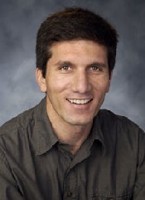Call for Proposals
A special issue of Across the Disciplines, Spring/Fall 2011
Writing across the Curriculum and Second Language Writers
Guest editors: Michelle Cox, Bridgewater State College; and Terry Myers Zawacki, George
Mason University
Along with the current drive to internationalize higher education has come a heightened institutional concern for the writing of our second language (L2) students. While there has been a recent burgeoning of research on L2 writers, the focus has been mainly on how these writers fare in composition courses. We know that L2 writers also write across the curriculum, in the majors, and in graduate programs, and yet there is still only a small body of research focused on these contexts. Given the increasing numbers of both residential and visa second language writers in higher education as well as the growing understanding of the complexities of writing across languages, cultures, and disciplines, we have a pressing need for more research from composition and L2 writing perspectives that explores the experiences of L2 writers and the expectations of faculty who teach these writers across the curriculum.
To that end, we invite proposals for articles that explore questions such as the following, as well as others related to the topic of Writing across the Curriculum/Writing in the Disciplines and second language writers:
· What are the experiences of second language writers as they write across the curriculum, in the disciplines, in graduate programs, in internships, and in the workplace after they graduate? In what ways do these experiences relate to language and culture? How do these experiences compare with those of native English speaking (NES) students?
· What challenges do second language writers face as they write across the curriculum, across the disciplines, and in graduate programs?
· What resources do second language writers bring to writing across the curriculum, in the disciplines, and in graduate programs?
· What are the attitudes and expectations of faculty across the disciplines for second language writers? To what extent might these attitudes and expectations differ by discipline, level of course, and genres of writing?
· How might faculty attitudes and expectations for second language writers influence the design of writing assignments, their response and grading practices, writing assessment, and the use of in-class writing activities?
· What approaches have WAC/WID administrators found successful in supporting faculty as they work with second language writers across the curriculum and what challenges have they faced in this effort?
· How do WAC/WID programs assess the success of WAC/WID programming in relation to second language students?
· What efforts are being made/should be made to incorporate second-language writing concerns into the development of large-scale writing assessment plans?
· How do second language writers fare on large-scale assessments of writing in the disciplines?
· What is the history of WAC/WID support of second language writing at your institution?
· What are successful models of collaboration between WAC/WID programs and other programs that support second language students, such as ESL programs, first year writing programs, writing centers, diversity programs, and programs at local school districts?
· How do the parallel areas of inquiry of WAC, WID, English for Academic Purposes (EAP), and English for Specific Purposes (ESP) inform each other? Where do they depart? What productive connections have been made/might be made?
We welcome proposals focused on these and other questions related to the intersections between WAC/WID and second language writing theory, research, pedagogy, and program administration as these pertain to L2 writers of academic English. We especially welcome collaborations between WAC scholars and L2 writing scholars.
Deadline for Proposals: May 15, 2010
Notification of Acceptance: by July 2010
Manuscripts Due: December 15, 2010
Publication: Spring/Fall 2011
Proposal Format: Please submit a one-page proposal explaining your topic, the research and theoretical base on which you will draw, and your plans for the structure of your article. Proposals and manuscripts should follow APA documentation style, which is the standard for Across the Disciplines. Send your proposal electronically (in MS Word format) to guest editors Michelle Cox (michelle.cox@bridgew.edu) and Terry Myers Zawacki (tzawacki@gmu.edu), and the editor of ATD, Michael Pemberton (michaelp@georgiasouthern.edu). Please be sure to include your full contact information.

 The WAC Clearinghouse News and Updates section is a place to find information about current WAC conferences, retreats, calls for submissions, publications, and a variety of other events of interest to the WAC community.
The WAC Clearinghouse News and Updates section is a place to find information about current WAC conferences, retreats, calls for submissions, publications, and a variety of other events of interest to the WAC community.